Catalina Coffee Celebrates Seven Years in the Bean Business
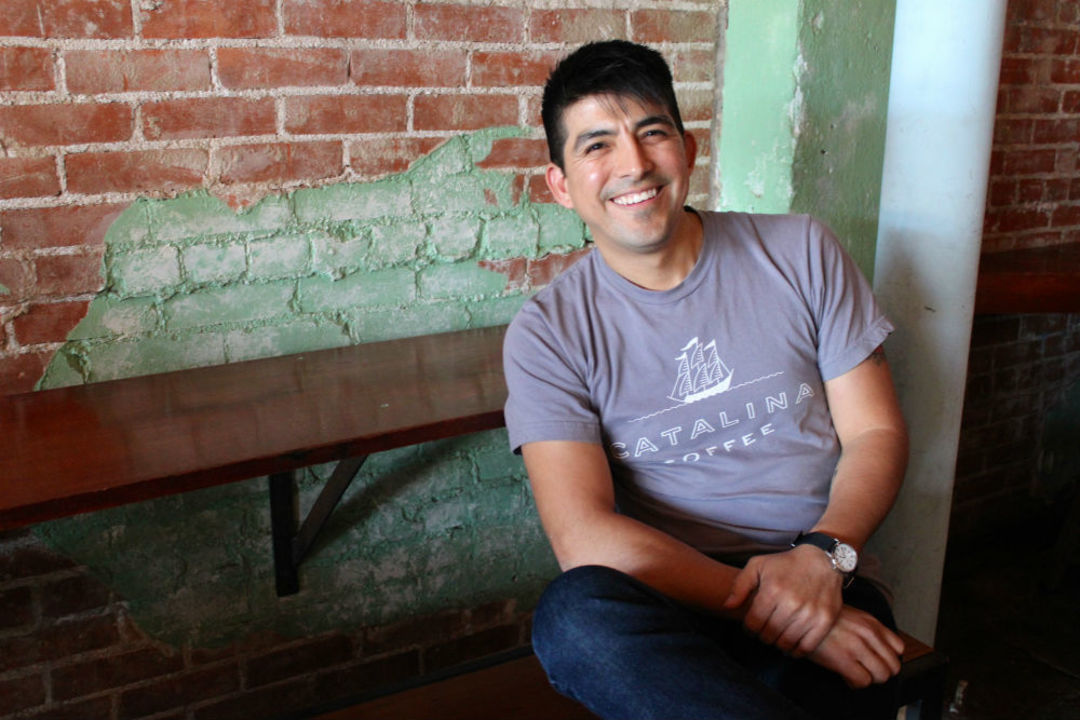
Max Gonzalez never set out to be a coffee roaster, or even a coffee kingpin.
Image: Katharine Shilcutt
Eight years ago, Houston didn't have much in the way of a consequential coffee culture, and Max Gonzalez was frustrated. But Gonzalez wasn't frustrated over the city's lack of lattes; at the time, the Northbrook High graduate was managing The Daily Grind, a coffee-centric restaurant on Washington Avenue, and hated his job. Gonzalez knew that he was tired of working for other people, but knew that he wasn't quite ready to open a restaurant of his own.
"A was a very naive 24-year-old," he recalls now. "I didn't know anything about coffee. But I thought I could pull off a coffee shop." Gonzalez never expected his cafe, Catalina Coffee, to change coffee culture in Houston. When the small shop opened in April 2007, says Gonzalez, "we were just another nondescript cafe." Catalina was planned as a caffeine fueling station for commuters heading into downtown from Washington Avenue, not as a coffee vanguard, and not as a place where many Houstonians would eventually taste their first serious cup of coffee. "It took us a year of being open before we really shifted our focus."
Today, Catalina Coffee—along with other catalytic cafes such as Greenway Coffee & Tea (now known as Tuscany Premium Coffee)—is regarded as an elder statesman of the modern coffee scene in Houston. This is a scene that places an emphasis on locally roasted beans from small, quality-driven coffee plantations, that wants you to enjoy your coffee without sugars and syrups, that employs baristas capable of pulling a professional shot of espresso from a machine that isn't operated by pressing a button, that convinces you to try something new and put down the Frappucino in favor of a flat white. But that path was a rocky one—mostly because Houstonians were already accustomed to a very different coffee culture. "The cafe industry in Houston was strong" at the time, says Gonzalez, "but based on the cafe as a meeting place instead of an actual product."
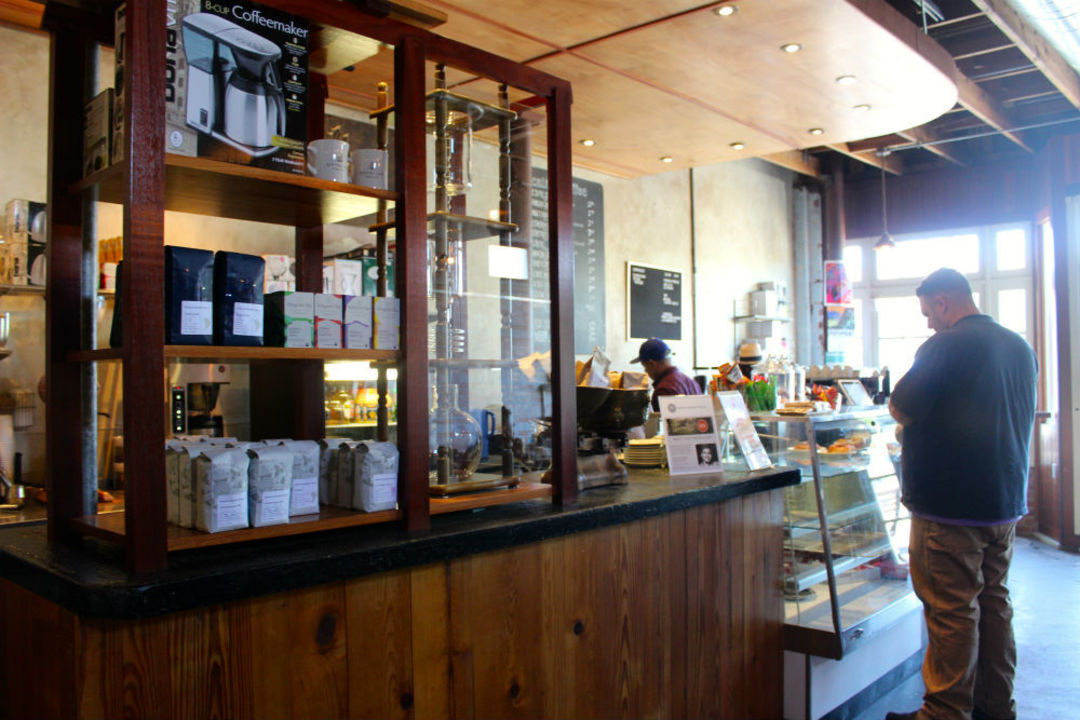
Gonzalez spent 15 months building everything inside Catalina from scratch, by himself.
"It took us a year of being open before we really shifted our focus," says Gonzalez. "What really shifted my momentum was a trip to Seattle, where I got to see real, actual coffee culture. When I came back from Seattle, my focus was completely different." He saw his "generic cafe" through a different lens, and knew he could do better. Gonzalez removed the blended beverages made with Amy's Ice Cream and the sugary syrups. He axed the wireless Internet in an effort to get people to interact with each other and the baristas more frequently. He took away the multiple sizes for each beverage and began serving them in the most appropriate portion for each drink. This last move was a final straw for some patrons.
"When we took away the 16-ounce latte we had a huge backlash," Gonzalez recalls. "In retrospect it sounds like such a simple thing and such a minor change overall, but it was huge to our customers. We lost customers because of it." But Gonzalez stubbornly stuck to his guns, digging his heels in even deeper. He'd tasted black gold in Seattle, and wanted Houstonians to have access to the same high-quality coffee.
Finding a local roaster proved impossible at the time, and the commercial-scale coffee beans Catalina had access to were of such low quality that it almost didn't matter if they were terribly over-roasted. So Gonzalez decided to teach himself. After all, he'd built Catalina from scratch—constructing everything from the drop ceilings down to the counters over the course of 15 months—so how hard could roasting be? Amaya Roasting Company was born in August 2008.
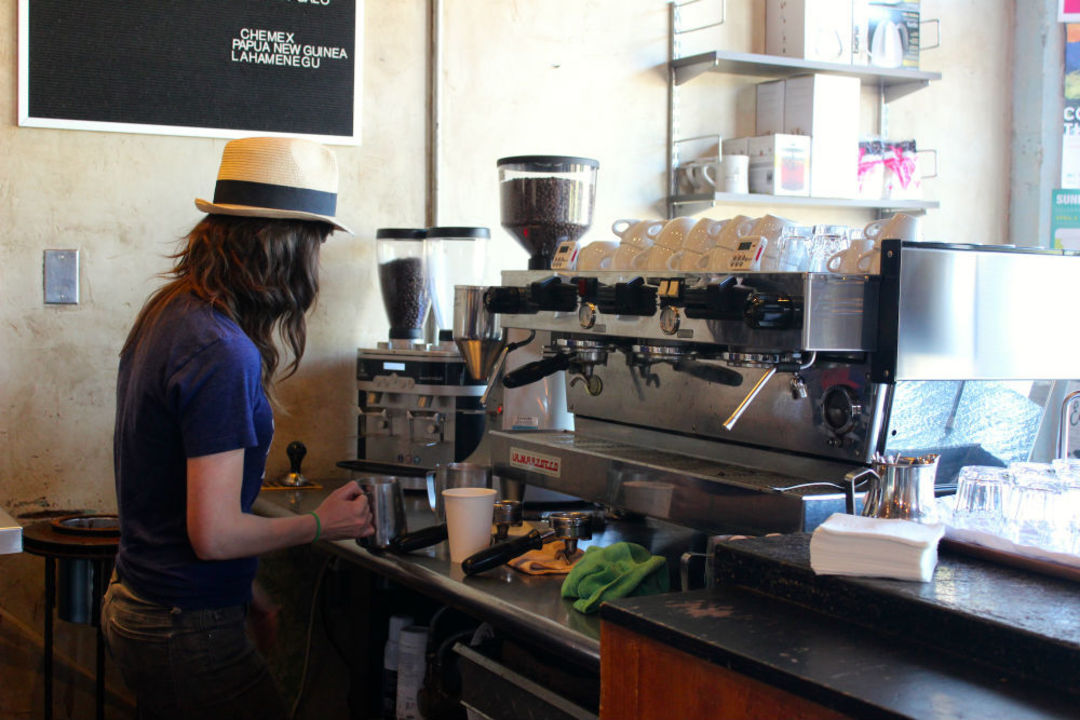
Gonzales attributes part of Catalina's success to his passionate employees, who tend to stick around for years at a time—and not just because they're paid well.
In his dogged pursuit of excellence, however, Gonzalez suddenly found he'd dug too deep. He was already running Catalina on a shoestring budget while he wrestled with the firmly-planted Houstonian notion of coffee shops as pumpkin spice latte factories. When Amaya opened, Gonzalez says, he had only $347 in the bank. In order to keep the roaster and the coffee shop from going under, he took an unusual step.
"I lived in my office for a year," Gonzalez says. "And I got a gym membership so I'd have a place to shower." Whereas other coffee shops were able to purchase paper cups by the case, Gonzalez could only purchase them by the sleeve. "I'd make enough money in one day to go back to the restaurant supply and by a new sleeve the next day." After six months of trial and error, Amaya Roasting Company finally sold its first product. And before long, Catalina was generating enough money for Gonzalez to move out of his cramped office at the roasting facility and into an apartment once again.
Today, what Gonzalez struggled to create has become the norm: David Buehrer roasts his own coffee beans through Greenway Coffee Company for his shops, Blacksmith and Tuscany. Sean Marshall roasts his own Fusion Beans for Southside Espresso. Matthew Toomey roasts Boomtown Coffee for his cafe of the same name. Avi Katz roasts his Katz beans for Inversion Coffee House and cafes across the city. Amaya's beans, too, are no longer reserved just for Catalina but for coffee shops and restaurants throughout Houston.
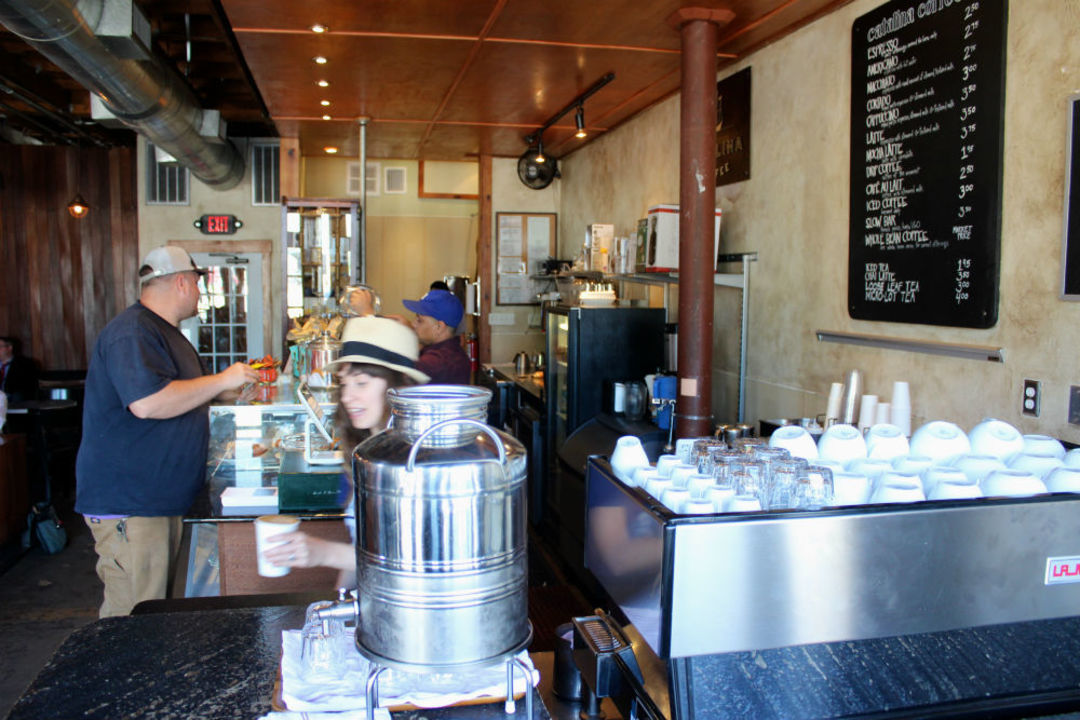
The coffee menu at Catalina is purposely short and sweet.
But this was no selfish pursuit. "I became a roaster to take control of the product line," says Gonzalez, who wanted Catalina's emphasis to be on quality above all else. "Everything I do is for my customers," he says. Then, laughing, he recalls: "One of the lessons I learned very quickly is that I thought I was opening up my own business, to work for myself. No. I work for my customers."
In appreciation of the folks who've kept him in business (and in a real home) for the past seven years, Gonzalez is throwing a series of anniversary events this weekend. It all starts with a meet-and-greet at the new Montrose location of Mercantile Coffee, one of the coffee shops where Gonzalez's beans are served, on Saturday. Gonzalez is hosting coffee grower Diego Guardia, whose coffee plantation—Hacienda Sonora in Costa Rica—is noted not just for its flavorful beans, but for its sustainable farming methods. Both Guardia and Gonzalez will be on hand during the tasting from 11 a.m. to 1 p.m. to answer questions and talk coffee.
Later that evening, Catalina Coffee is celebrating the opening night of a photography exhibition from Jack Thompson. The beautiful black-and-white prints are the result of a trip Thompson and Gonzalez took to Guardia's Sonora coffee plantation in December, where Thompson photographed the harvesting of beans that would eventually be shipped to Houston, roasted at Amaya, and served at Catalina. In another full-circle process, Catalina will also be serving the Buffalo Sunset Coffee Black IPA brewed by Buffalo Bayou Brewing Co. using Amaya's beans, along with Fat Cat Creamery ice creams and other treats.
The next day, join Gonzalez and his baristas at 13 Celsius, where he's hosting an open bar for anyone who wants to come and enjoy wine, beer, and Fluff Bake Bar cupcakes on him. "There is no Catalina without the customer," says Gonzalez of the generous event. "It's really a celebration of what every single customer who's come to the store has done for us."
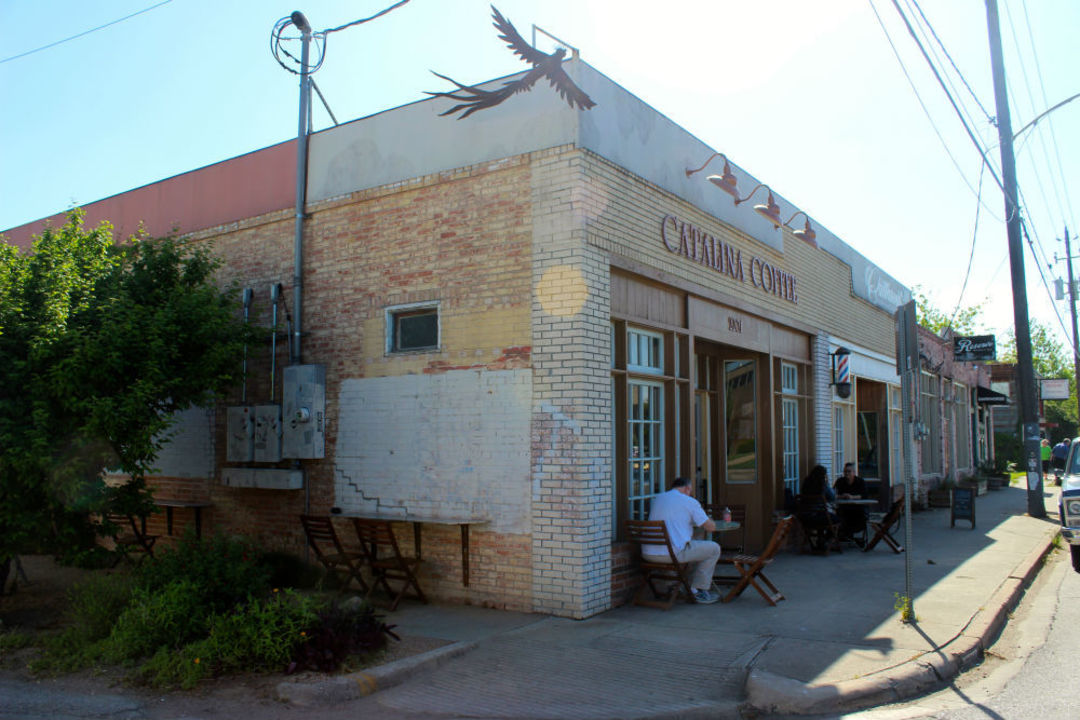
"I used to sit on the roof and count cars drive by," says Gonzalez of his decision to open on the heavily trafficked Washington corridor.




